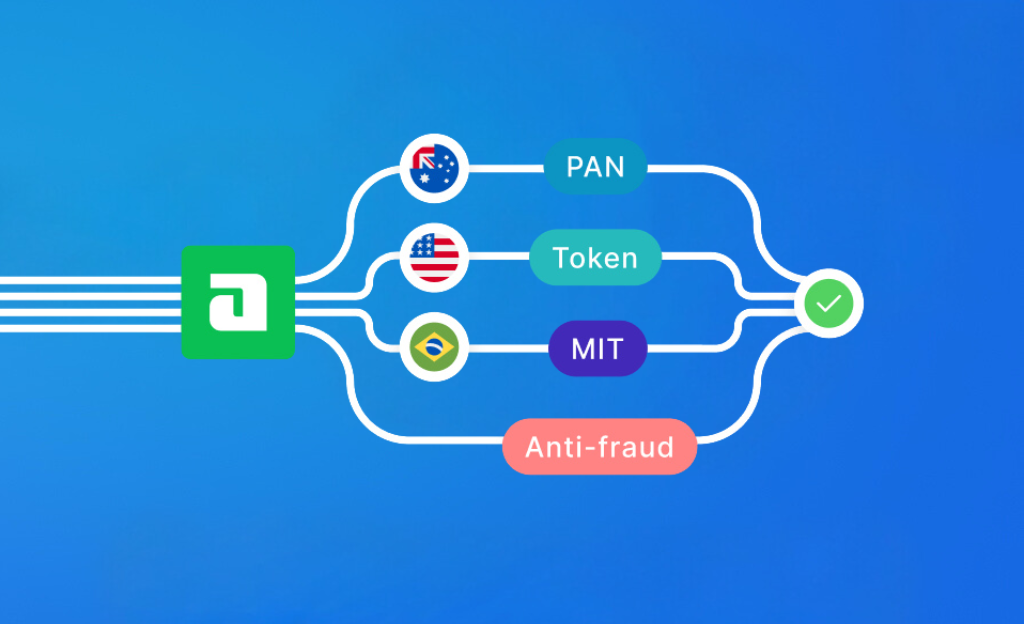
February 23, 2024
Understanding payment routing
Over the past 20 years, how people pay, receive, and transfer money has changed drastically. Nowadays, payments are based on a big orchestration with a robust network of systems and protocols. At the heart of this intricate architecture lies payment routing, a fundamental process that ensures transactions are executed efficiently and securely. Whether you’re swiping a credit card at a local store or conducting a cross-border wire transfer, payment routing plays a pivotal role in facilitating the flow of funds.
Payment routing can be best understood as the process of determining the most optimal path for a transaction to travel from the payer to the payee. It involves a series of steps that guide the transaction through various intermediaries, such as banks, payment processors, and networks until it reaches its final destination.
The journey begins when a payment instruction is initiated by the payer. This could be anything from swiping a card, entering payment details online, or authorizing a wire transfer. The payment request is then authenticated and authorized by the payer’s financial institution. This step involves verifying the payer’s identity, checking for available funds, and ensuring compliance with security protocols. Once authorized, the payment is handed off to a payment gateway or orchestrator, which acts as a traffic controller for the transaction. Here, complex algorithms analyze factors such as transaction amount, destination, and network availability to determine the optimal route.
Finally, the transaction reaches the payee’s financial institution, where the funds are deposited into the designated account. This step involves reconciling the transaction details and updating the relevant ledgers to reflect the transfer of funds.
Several factors influence the routing decision, including:
- Cost: Routing algorithms often prioritize the most cost-effective path for the transaction, considering fees charged by intermediaries and networks.
- Speed: Time-sensitive transactions may be routed through faster networks or corridors to ensure prompt delivery.
- Reliability: The reliability and stability of the chosen route are crucial to minimize the risk of transaction failures or delays.
- Regulatory Compliance: Routing decisions must comply with local and international regulations governing financial transactions, including anti-money laundering (AML) and Know Your Customer (KYC) requirements.
Efficient payment routing is essential for the smooth functioning of modern commerce, and payment orchestrators can act as key players when deploying an intelligent payment routing strategy and avoiding vendor lock-in. Here’s why it matters:
- Speed and Efficiency: By optimizing the payment route, transactions can be processed quickly and cost-effectively, enhancing customer satisfaction and business agility.
- Global Connectivity: Payment routing enables seamless cross-border transactions, fostering international trade and economic integration.
- Risk Mitigation: Robust routing mechanisms help mitigate operational and security risks associated with financial transactions, safeguarding against fraud and errors.
- Innovation and Growth: Advances in payment routing technology, such as blockchain and real-time settlement systems, drive innovation and open up new opportunities for financial inclusion and economic development.
Despite its benefits, payment routing faces several challenges, including interoperability issues, legacy infrastructure, and regulatory complexity.
Looking ahead, the future of payment routing promises greater efficiency, transparency, and inclusivity, empowering individuals and businesses to transact seamlessly across borders and currencies. As technology evolves, understanding the intricacies of payment routing will be crucial for navigating the ever-changing landscape of global finance.
If you’re ready to explore how a payment orchestrator can support your payment strategy and future-proof your checkout, get in touch with our team for a full consultation with one of our experts.